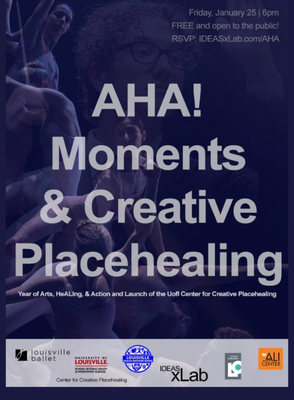
With the advent of the new ACRL Framework for information literacy, the librarian involved in the labs decided to try to reframe these four labs around the six frames. For more than 15 years, these skills labs have included four sessions focused on information literacy (IL) taught by a librarian.
#Aha moments four oaks series
It combines lectures on the theme of “knowledge” in the sciences, social science, humanities, and fine arts, together with a series of labs designed to support the development of a variety of academic success skills. One of the foundational Liberal Education courses, LBED 1000, is a first-year undergraduate, semester-long class. In recent years, the principles of Liberal Education at the U of L have been defined by four “pillars”: breadth across disciplines the ability to connect and integrate knowledge critical thinking and problem-solving skills and civic engagement. The University of Lethbridge (U of L) was founded in 1967 as a primarily undergraduate institution with a Liberal Education philosophy. But how do we know if students “get” these concepts? By linking threshold concepts to the Framework, we can analyze the content of student reflections to see what thresholds the students have trouble crossing. These six Frames form an interconnected set of skills critical for students to adopt before becoming truly information literate. These include Authority Is Constructed and Contextual Information Creation as a Process Information Has Value Research as Inquiry Scholarship as Conversation and Searching as Strategic Exploration.

The Frames focus on core concepts of information literacy, which function as threshold concepts (as originally defined by Meyer and Land 2) and can be troublesome for most students to cross. When the Association of College & Research Libraries (ACRL) replaced their earlier Information Literacy Competency Standards for Higher Education with an updated Framework for Information Literacy for Higher Education in 2015 1, librarians everywhere began to rework their information literacy classes to include these new ideas.

Student reflections from three semesters’ worth of classes were analyzed for content related to each of the six Frames, as well as for areas of enlightened understanding (evidence of crossing a threshold into higher understanding, as first outlined by Meyer and Land, 2003) and continued confusion, with applicability for all instructors trying to incorporate the Frames. This article discusses how the librarian responsible for a series of four labs in a first-year course reformed the lab content around the six ACRL Frames. With the advent of the ACRL Framework for Information Literacy for Higher Education in 2015, librarians everywhere have tried to adapt their existing information literacy sessions to incorporate the revised concepts.

Aha Moments and Continued Confusion: An Analysis of Threshold Concepts through Student Reflections in the ACRL Framework


 0 kommentar(er)
0 kommentar(er)
